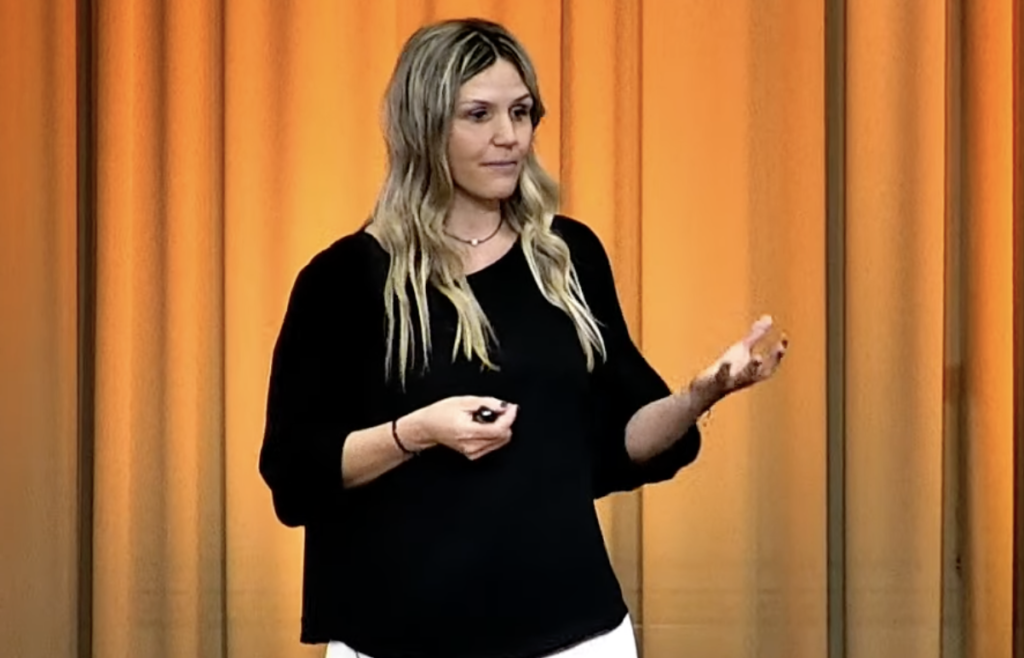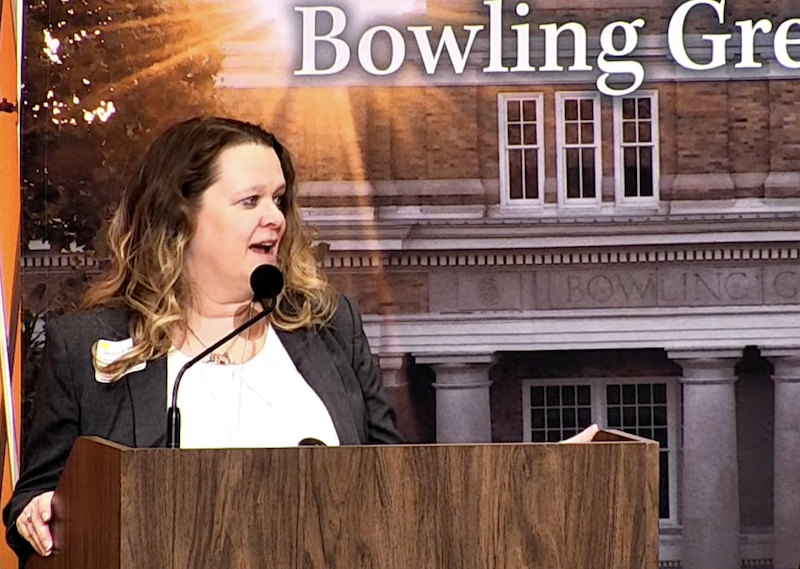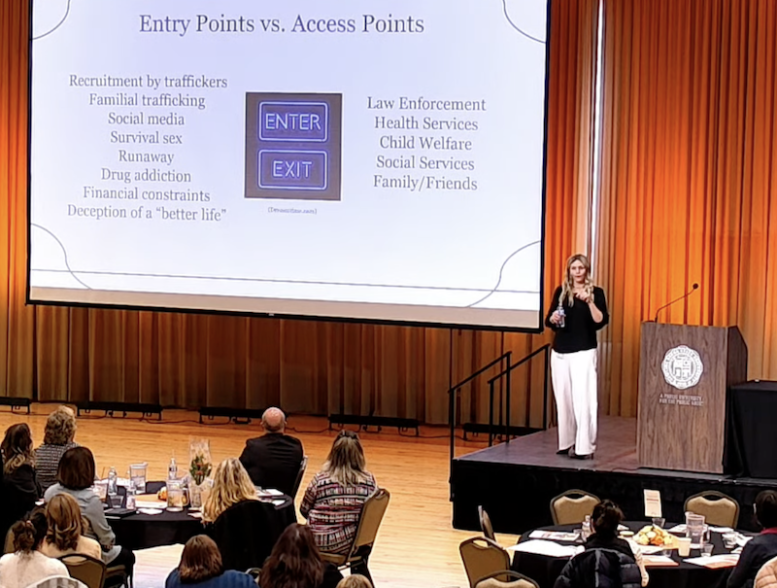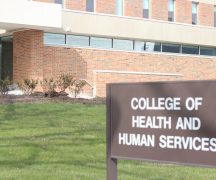By JULIE CARLE
BG Independent News
For Dr. Lara Wilken, human trafficking is not just a social justice issue, but it is a public health crisis.
As the Ned E. Baker keynote speaker at Thursday’s Bowling Green State University Public Health Symposium, Wilken made the case that public service and healthcare professionals across the spectrum can help prevent, identify and empower individuals who are victims of human trafficking.
Everyone has the potential to be front-line identifiers if they understand the issue, know what to look for, and ask the right questions, Wilken said.
Human trafficking can happen anywhere from hotels, truck stops and restaurants to malls, farms and homes. Individuals are recruited, harbored, transported or obtained through force, fraud or coercion.
“Human trafficking is not always like what you see in the movies and in the media. It’s the development of a relationship, the facilitation of a bond, a trauma bond, which makes it incredibly challenging for the victims to leave,” she said.
There are many faces of human trafficking, whether they are being trafficked for sex or labor. They are not always teenage girls. They can be boys, women or men. Up to 36% of sex-trafficked children in the U.S. are biologically born males, Wilken said.

Those most at risk are often vulnerable individuals, who may be homeless, runaways, foster youth, immigrants, disabled, drug addicts or members of the LGBTQ community.
“Human trafficking does not discriminate based on gender, race or ethnicity, not for the victims or the traffickers,” Wilken said. “It’s important to know the common theme of those who are trafficking other human beings. Many of them hold positions of trust.”
They are skilled at the grooming process, which is also important knowledge for those who might be front-line identifiers. “The traffickers develop their own hierarchy of need, break down the victims’ self-confidence, exploit their vulnerabilities and establish psychological control,” she said.
The perpetrator convinces the victims that they will take care of them and be their protector. They become the family they never had or provide the love they never received.
The issue has no boundaries, but Wilken is concerned for her state and northwest Ohio because Toledo is ranked in the top five cities in the country for the most calls to the National Trafficking Hotline. While she called the statistic shocking, Wilken also sees it as a sign of hope because the high numbers indicate that maybe more people are aware of what human trafficking is and know about the resources that are available.
There are some groups of service workers, such as cosmetologists, who are required to go through trafficking training. Wilken’s goal is that all public service workers and healthcare professionals be trained in trauma-informed care and trafficking education. “That’s something we can change,” she said.
Interprofessional collaboration is an important concept for eradicating human trafficking. Educators, healthcare professionals, child welfare workers, fire/EMS/police, social service agencies, community members, family and friends, public health professionals and politicians all can play a role from prevention to identification to empowerment. It requires people to educate ethically, use a trauma-informed approach, collaborate with others, believe survivors, and also “respect the no.”
Victims aren’t always ready or able to admit their situations, whether they are afraid, feel shame or because “the trafficker will go to great lengths to protect their investment in the multi-billion-dollar industry,” Wilken said.
“We need to consider the person and their situation about why they are acting the way they are. Everyone processes trauma differently,” she said.
Everyone can have a role to play in the process of identifying and empowering individuals in trafficking situations, Wilken said. “Eighty-eight percent of victims recovered from the life of trafficking stated that during their time of exploitation they were seen and/or treated by healthcare providers, and human trafficking was never recognized.
“What they need is for you to meet them with kindness and compassion so they know they are in a safe space and you are there to support them. My hope today is that I will have inspired you to look for the pictures you don’t see. You plant that preventative seed.”
Frontline identifiers have the ability to provide critical resources to address victims’ immediate, complex, and multi-faceted needs.

Carolyn Kinkoph, whose daughter Courtney lost her life in 2022 to sex trafficking, talked about the many times her daughter sought treatment in her life and no one ever saw her as a victim of trafficking.
“This is never easy, but I tell you Courtney’s story so maybe you can recognize some possible entry points that can be identified to create possible exit points for victims you might encounter in your practice.”




